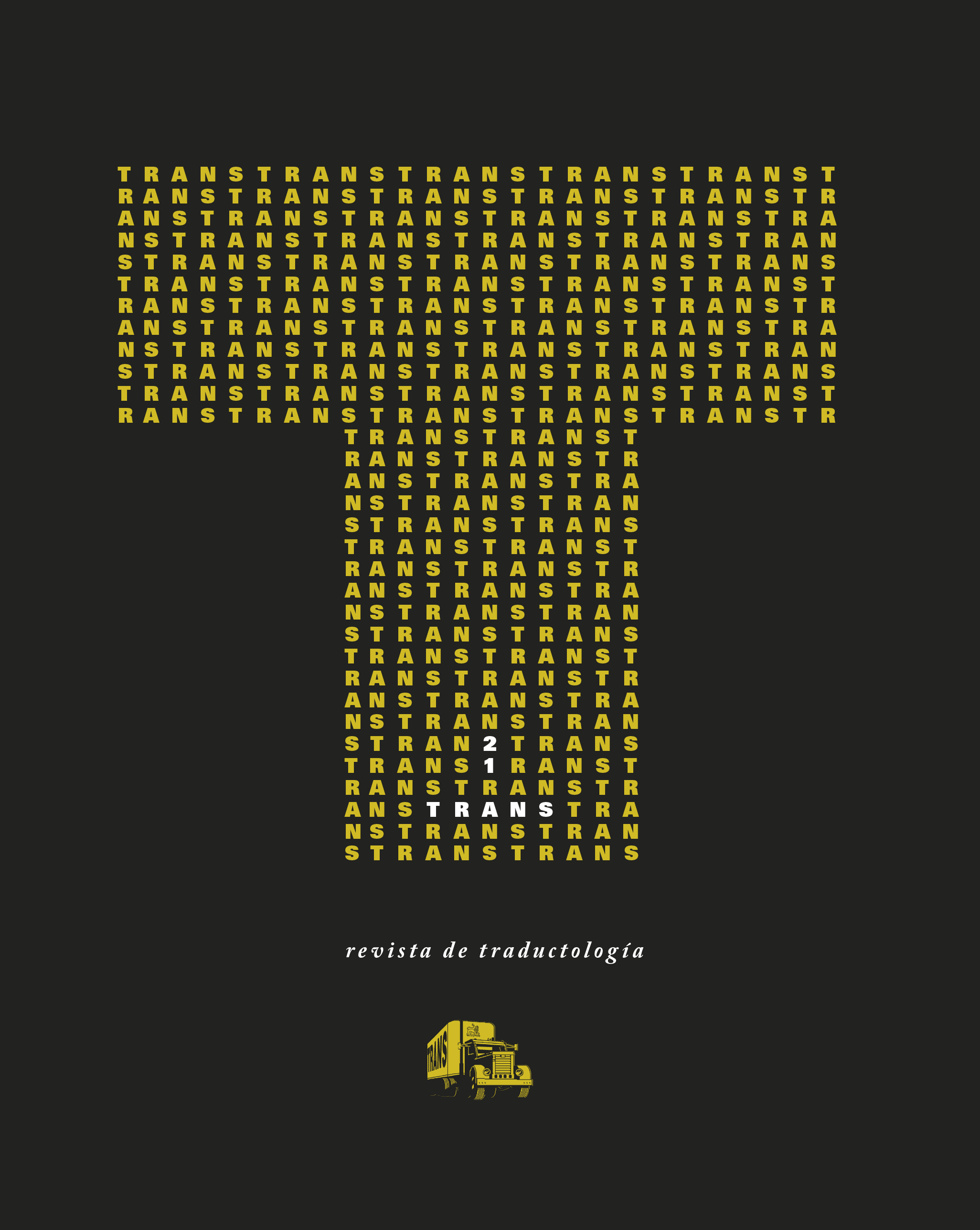Basmala: Translating An Iconic Phrase
DOI:
https://doi.org/10.24310/TRANS.2017.v0i21.3657Keywords:
Basmala, Cultural translation, Literary translation.Abstract
This note examines how an iconic Arabic phrase such as the basmala has been translated into Persian and English. These translations reflect different aesthetic, political and cultural aspects of this phrase. Outside of its Qur’ ? nic context, embedded within it, the basmala has extended cultural meanings. An equivalence-based approach to the translation of formulaic expressions would not suffice for the translation of the basmala in literary contexts.Downloads
Metrics
Publication Facts
Reviewer profiles N/A
Author statements
Indexed in
-
—
- Academic society
- N/A
- Publisher
- Universidad de Málaga
References
Anvari, Hasan (2002): Farhang-i Buzurg-i Sukhan.Tihra?n: Intisha?ra?t-i Sukhan.
Arberry, A J. (1955): The Koran Interpreted. London: Allen & Unwin.
Arberry, A J. and J. Salmasizadeh (1962): A Translation of One Section of the Koran. Tehran: Tehran University Press.
Asad, Muhammad (1980): The Message of the Qur’?n. Gibraltar: Dar al-Andalus.
Ayati, ?Abd-al-Muh?ammad A. (1988): Qur’?n-i Maji?d. Tihra?n: Suru?sh.
Bakhtiar, Laleh (2012): The Sublime Quran. Chicago: Kazi Publications.
Cleary, Thomas (2004): The Qur’?n. Bridgeview, Il:Dawlat?a?ba?di?, Mah?mu?d, and Martin E. Weir (2014): Thirst. London: Melville House.
Dawood, N.J. (2006): The Koran. London: Penguin Books.
Fakhry, Majid (2002): An Interpretation of the Qur?a?n: English Translation of the Meanings: a Bilingual Edition. New York: New York University Press.
al-Hil?l, Muhammad and Muhammad Kh?n (1999): The Noble Quran: Interpretation of the Meanings of the Noble Qur’?n in the English Language. Dar-us-Salam Publications.
Jones, Alan (2007): The Qur?a?n. Cambridge: Gibb Memorial Trust.
Khurramshahi, Baha? al-Din (2011): Tarjuma-kavi. Tehran: Nahid Publishers.
— (1997): Qura?n-i Kari?m. Tihra?n: Ni?lu?far.
Lawrence, Bruce (2005): «Approximating saj‘ in English Renditions of the Qur’?n: A Close Reading of s?ra 93 (al-?u??) and the basmala.»
Journal of Qur’?nic Studies, 7(1), pp. 64-80.
Mustawfi?, ?Abdulla?h (1962): Sharh-i Zindaga?ni?-yi Man: Ya? Ta?ri?kh-i Ijtima??i? u Ida?ri?-yi Dawre-yi Qa?ja?ri?yeh. Tihra?n: Zavva?r.
Mustapha, Hassan (1998): «Qur’?n (Koran) Translation» In: M. Baker, ed., Routledge Encyclopedia of Translation Studies. London: Routledge, pp.200-204.
Pickthall, Mohammad M. (1984): «The Glorious Qur’?n.» New York: Mostazafan Foundation of New York.
Riva?qi, ?Ali? (1985): Qur?a?n-i Quds. Tihra?n: Mu?assasah-?i Farhangi?-i Shahi?d Muh?ammad Riva?qi?.
Sequeiros Rosales, Xosé (2004): «Formulaic Expressions in Translation.» TRANS: Revista de Traductología, 8, pp. 105-114.
Tahiri-Qazvini, Ali Akbar (2001): Qur’a?ni Mubin. Tihra?n: Intisha?ra?t-i Qalam.
Yahaghi, Mohammad Jafar (2002): «An Introduction to Early Persian Qur’?nic Translations.» Journal of Qur’?nic Studies, 4(2), pp. 105-109.
Downloads
Published
How to Cite
Issue
Section
License
All contents published in TRANS. Revista de Traductología are protected under the Creative Commons Attribution-NonCommercial-ShareAlike 4.0 International (CC BY-NC-SA 4.0) license. All about this license is available in the following link: <http://creativecommons.org/licenses/by-nc-sa/4.0>
Users can copy, use, redistribute, share and exhibit publicly as long as:
- The original source and authorship of the material are cited (Journal, Publisher and URL of the work).
- It is not used for comercial purposes.
- The existence of the license and its especifications are mentioned.
- ShareAlike — If you remix, transform, or build upon the material, you must distribute your contributions under the same license as the original.
There are two sets of authors’ rights: moral and property rights. Moral rights are perpetual prerogatives, unrenounceable, not-transferable, unalienable, imprescriptible and inembargable. According to authors’ rights legislation, TRANS. Revista de Traductología recognizes and respects authors moral rights, as well as the ownership of property rights, which will be transferred to University of Malaga in open access.
The property rights are referred to the benefits that are gained by the use or the dissemination of works. TRANS. Revista de Traductología is published in an open access form and it is exclusively licenced by any means for doing or authorising distribution, dissemination, reproduction, , adaptation, translation or arrangement of works.
Authors are responsable for obtaining the necessary permission to use copyrighted images.













21.png)
